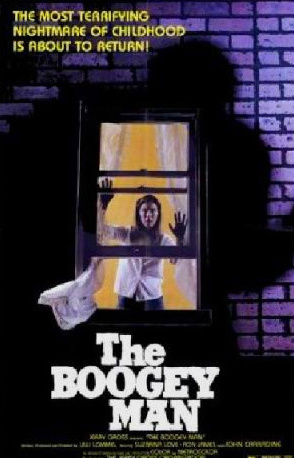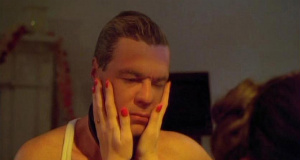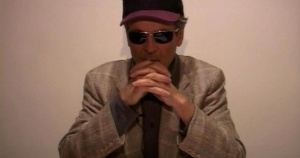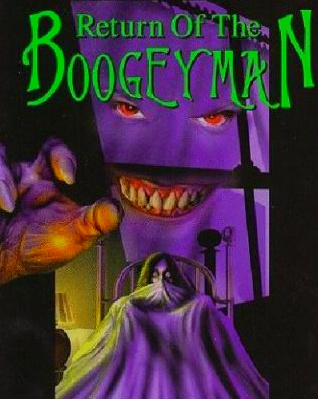
How did you first make the transition from acting to directing and how come you eventually decided to relocate to America in the late seventies?
“I had grown up as an actor with my dad on stage who was a comedian. I started when I was four years old. So by the time I was twenty-three I had done so much acting in so many plays, TV and movies, I wanted to write and direct. And I realized I also needed to produce. Fassbinder showed me how “easy” it was, meaning you don’t believe anything people tell you, including film schools, and just do it. But realizing dreams in Germany creatively was not easy, since Germans have a very negative attitude towards new ideas. So I went to America, because the Americans I had worked with, like Russ Meyer and Al Zugsmith, had a positive outlook and that was encouraging. It was Andy Warhol who had seen one of my films at the Chicago Film Festival and asked me to make movies with him in NY, which I did, we made Blank Generation and Cocaine Cowboys together.”
During this time you enjoyed a prolific collaboration with your then-wife, Suzanna Love, which would result in The Boogeyman. Having previously worked together on Blank Generation, what prompted you to write a horror film together?
“The reviews for Tenderness of the Wolves were so good in America, that I thought I should make another horror film. The themes in Boogeyman, such as difficult childhood, mom betraying dad, rage and anger and having to chase away ghosts had always been on my mind. And since Suzanna spoke much better English than me at the time, we teamed up and I gave her the lead role.”
Were you a fan of this type of film or did you decide to make a horror purely for commercial reasons? How did the concept for The Boogeyman originate and with your story sharing certain similarities with John Carpenter’s Halloween, would you say that you were inspired by that film?
“My inspirations come from Hitchcock films, and later, for Olivia and Brainwaves, I returned to my Hitch fascination. I like montage, like Hitch. I like building suspense and mounting scenes. I am very conscious of each cut when I film a scene, that’s why I only use thirty thousand feet of 35mm neg. for each film.”
Would you describe your film as a slasher or a supernatural horror? The story certainly shows elements of both, which audience did you intend on aiming for?
“I never aim for an audience, I do not think about that. I follow my instincts and where I want to go. I like supernatural thriller more than slasher.”

At that time, European horror had become notorious for its excessive violence and nudity, particularly with regards to many Italian giallo and cannibal films. Were you inspired in any way by this type of film or was it a conscious decision from the beginning to make an American-type horror?
”What is American is the setting and the language I think, and maybe some of the characters. But other than that I think it’s very European. I don’t watch movies really, except the ones by Hitchcock, Kubrick, Bergman, Antonioni, Fellini, Godard, Truffaut, Bunuel, Peckinpah, Hawks, Ford, Lynch and Welles and silent movies.”
How challenging was it to write a screenplay with your wife and then direct her? Did this ever cause any major issues whilst making the movie?
“It was easy because Suzanna is easy going. That’s why we made so many films together. I loved working with her.”
How did you feel about The Boogeyman being labelled as a ‘video nasty’ in the UK, where it was banned and remained unavailable for many years?
“That’s society. Double standards, full of lies and pointing fingers. A totally corrupt world, driven by insane egos and narrow minded fools. The media is controlled by corporate giants and it’s all a big farce. It’s all misinformation, manipulation and lies.”
Do you feel the film received the recognition it deserved and what kind of effect did it have on your career?
“I’m very happy with it, and I licensed the rights to the title to Sony until 2013, then I want to make my own remake of the original.”
How did Boogeyman II come about and why did you decide to use long sequences of the first film?
“I did not want to make a sequel, did not want to exploit my own success. But when a financier gave me money and said “Do what you want, just call it Boogeyman II” it was too tempting. So I made a movie about me not wanting to make a movie. It’s really a film about Hollywood. Using all the old footage was on purpose.”

Many have criticised the sequel for its lack of original footage and it has sometimes been referred to as one of the worst sequels ever made. How does this make you feel and what is your response to the people who find the movie a waste of time?
“Oliver Hardy called it a fascinating addition to the Hollywood on Hollywood genre, and other critics also kind of got it. Many of my films work as metaphors, symbolic, are political statements, often messing with the genre, provoking the audience, stirring up something, and frequently people don’t get it and get angry. I’m working on being a better messenger though.”
How come you decided to shoot additional scenes twenty years later for the ‘Director’s Cut?’ Did you feel that the original version did not do the concept justice and how would you compare this to the 1983 cut?
“If it were up to me I would shoot new scenes for all my movies all the time. Nothing is ever done in my mind, I also like to use scenes from certain films and intercut them with new scenes in new movies, nothing is ever done in my mind, it is all still alive and ready to be shuffled around. Like a witches brew.”
Another sequel, Return of the Boogeyman, appeared in 1994, yet you did not receive proper screen credit as director or writer. Would you consider this an official continuation from the previous two and what how did this film come about?
“Boogey 3 was another attempt to play with the original, to kind of revive it, and some of it worked in my mind, other scenes didn’t. It’s very uneven.”
Have you ever considered making a proper sequel to The Boogeyman and, if so, what kind of ideas have you toying with? Are you proud of what you achieved with the films and how would you compare the horror genre of today to the one that you made the original movie in back in 1980?
“I want to do a remake of the original. That’s all I want. No sequels, nothing. I do not watch movies much, so I cannot tell you about how I feel about ’80’s films and the ones of the present. I really enjoyed your sincere questions, very indepth, much appreciated, that’s why I couldn’t stop reading your questions and answering them, even though I was planning to do it tonight rather than now. Thanks again!”


3 Responses to Exclusive Interview With THE BOOGEYMAN Director Ulli Lommel